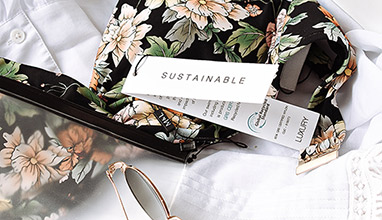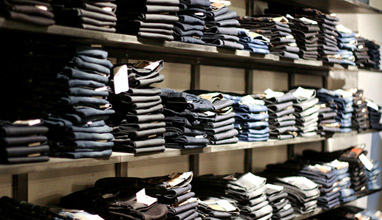Fast Fashion: The End of Impunity in France?

Behind cheap clothes, a reality we can no longer ignore
T-shirts for €2, dresses shipped in 48 hours from the other side of the world, hundreds of new items every day on apps like Shein or Temu. In recent years, ultra-fast fashion has taken over our closets and our buying habits. But at what cost? Behind this abundance lies one of the most polluting industries on the planet, built on human exploitation and the depletion of natural resources.
A groundbreaking bill to regulate the sector
For the first time, a French bill directly targets this economic model. Recently passed by the National Assembly, the law aims to make companies pay for the true social and environmental cost of disposable fashion. The goal: to slow down the breakneck pace imposed by industry giants and restore some fairness to a skewed market.
An eco-penalty for ultra low-cost clothing
Starting in 2025, brands identified as part of the fast fashion economy could face a new eco-tax. This “penalty” would begin at five euros per item, potentially reaching ten euros by 2030. It’s a simple but powerful measure: harmful products should no longer be the cheapest ones on the market.
Greenwashing under fire
The law also seeks to regulate how brands communicate. Vague claims like “eco-friendly” on mass-produced, low-cost items made under questionable conditions will no longer be tolerated. All advertising must now include clear, detailed information about a product’s actual environmental impact. It’s a way to curb greenwashing while empowering consumers.
A stop to influencer-driven overconsumption?
Another major change: influencers will no longer be able to promote fast fashion brands without oversight. The days of “haul” videos featuring dozens of items with no accountability may be numbered. From now on, such content must include warnings about the environmental impact of the products. It's a step toward making content creators more responsible in shaping consumer trends.
A toxic business model — and not just for the planet
Fast fashion’s impact goes far beyond the environment. With breakneck production speeds, often in informal workshops or underpaid factories, these brands fuel a form of modern-day neo-colonialism. They exploit poverty abroad to feed overconsumption at home. This bill is a reminder that our consumption choices are never neutral.
A global first?
If fully adopted, France will become one of the first countries in the world to legislate so directly against fast fashion. That matters. It shows that regulation can evolve with the digital age — and that no business model, no matter how powerful, is above the law. It also sends a strong message to the rest of Europe: it’s time to act collectively.
What this law won’t change on its own
But legislation alone won’t be enough. Its effectiveness depends on broader efforts: better public awareness, more support for local textile industries, and education on slower, more conscious consumption. This law may be a turning point, but only if we collectively decide to hit pause.
Conclusion: Fashion can’t keep looking like the past
Now is the time to ask real questions: Why are we buying so much, yet using so little? Why do we accept that a T-shirt costs less than a sandwich? With this law, France signals that another kind of fashion is possible — one that respects the planet, workers, and common sense.
Photo : Depositphotos
Hits: 6533 | Leave a comment
Tags:Fast Fashion, France, Shein, Temu, Europe























